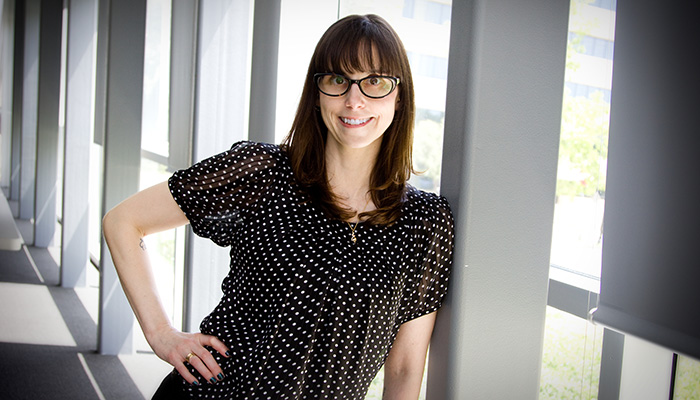Fighting the ‘freshman 15’
By Jan Jarvis
College students typically blame too much fast food for the famous freshman 15.
But research from UNT Health Science Center suggests that weight gain in college has as much to do with when you go to bed as what you eat for dinner
Fluctuating sleep patterns, a common condition of college life, predicted weight gain during the first semester of college, said Brandy M. Roane, PhD., Assistant Professor of Internal Medicine and lead author of a study in the Journal of Behavioral Sleep Medicine.
As part of the study, 132 freshmen at Brown University self-reported their sleep habits in a sleep diary. The data was analyzed and compared to their weight gain.
The average bedtime was 1:30 a.m. and the average wake time was 9 a.m. But the bed times and wake times of freshmen men varied far more than for women, shifting daily by an average of 2 hours, 37 minutes.
“Boys who had the greatest fluctuations in sleep duration were the most likely to gain weight,” Dr. Roane said. “And even though the weight gain was less than the ‘Freshmen 15,’ for the girls it was enough to change their clothing size and for boys their waist size by an inch. So the clothes these students brought to school with them wouldn’t fit by the end of the semester.”
In analyzing the data, Dr. Roane considered that college students have wildly fluctuating schedules and girls tend to get up earlier, due to the “primp factor.” She also noted that all of the students lived on campus and walked to classes, but this daily activity did not prevent weight gain.
The students gained an average of a half-pound a week in the course of the nine-week study.
“The average adult gains one pound a year,” Dr. Roane said. “These guys gained 5 pounds in nine weeks.”
To reduce the risk of gaining weight, students might want to keep their sleeping schedule more structured, Dr. Roane said.
“Pick a time to wake up and stay with it,” she said. “If students could reduce the variability in their sleep it is likely they could reduce their weight gain, too.”







Social media